
Private Mohammed Kahn—Civil War Hero
On the 160 year anniversary of the end of the Civil War, read this iconic story of an American Muslim Civil War hero (before it's wiped from our history books)
Here’s a story you won’t find in corporate media, and one the current regime will likely try to wipe from our history books. That’s why it is that much more critical we preserve and document this history.
On April 9, 1865, exactly 160 years ago today, the Civil War ended. Sadly our country has returned to a point of Constitutional crisis and corruption that threatens to undermine our very Republic. But I believe in maintaining hope for a more perfect Union.
And to do that, today I share an inspiring story about the power of unity. A story that took place during the Civil War. The story of Private Mohammed Kahn, also known as John Ammahail, a Muslim immigrant and Civil War hero. At a time of rising anti-Black violence, anti-immigrant fascism, and anti-Muslim hate—Kahn’s story rebukes such division and discord, and instead exemplifies the beauty of what this country can be. Let’s Address This.
Who was Mohammed Kahn?
Born in Persia, modern day Iran, in or around 1830, Mohammed Kahn was raised in modern day Afghanistan. He immigrated to the United States in early 1861, during the period of antebellum America. Also known as John Ammahail, Kahn quickly made friends upon arrival. Only two months after his arrival, the Civil War broke out in April of 1861. After a night out with his friends, Mohammed Kahn became Private Mohammed Kahn when he enlisted with his friends in the 43rd New York Infantry Regiment. The 43rd New York Infantry Regiment was an all white unit. Kahn was a person of color, yet evidently passed as “white enough.”
This is where his story truly begins and becomes history.
The Immigrant Muslim Enlists in the Union Army
Khan spent the first two years of the Civil War as a cook serving the Union Army. That all changed in July of 1863 when Private Kahn fought in the infamous Battle of Gettysburg. Mere days after the battle and due to the ensuing chaos, he was unfortunately separated from his unit. As he was not white, the Union guards who found him arrested him in Hagerstown, Maryland, and brought him before the Provost Marshall’s headquarters to explain himself.
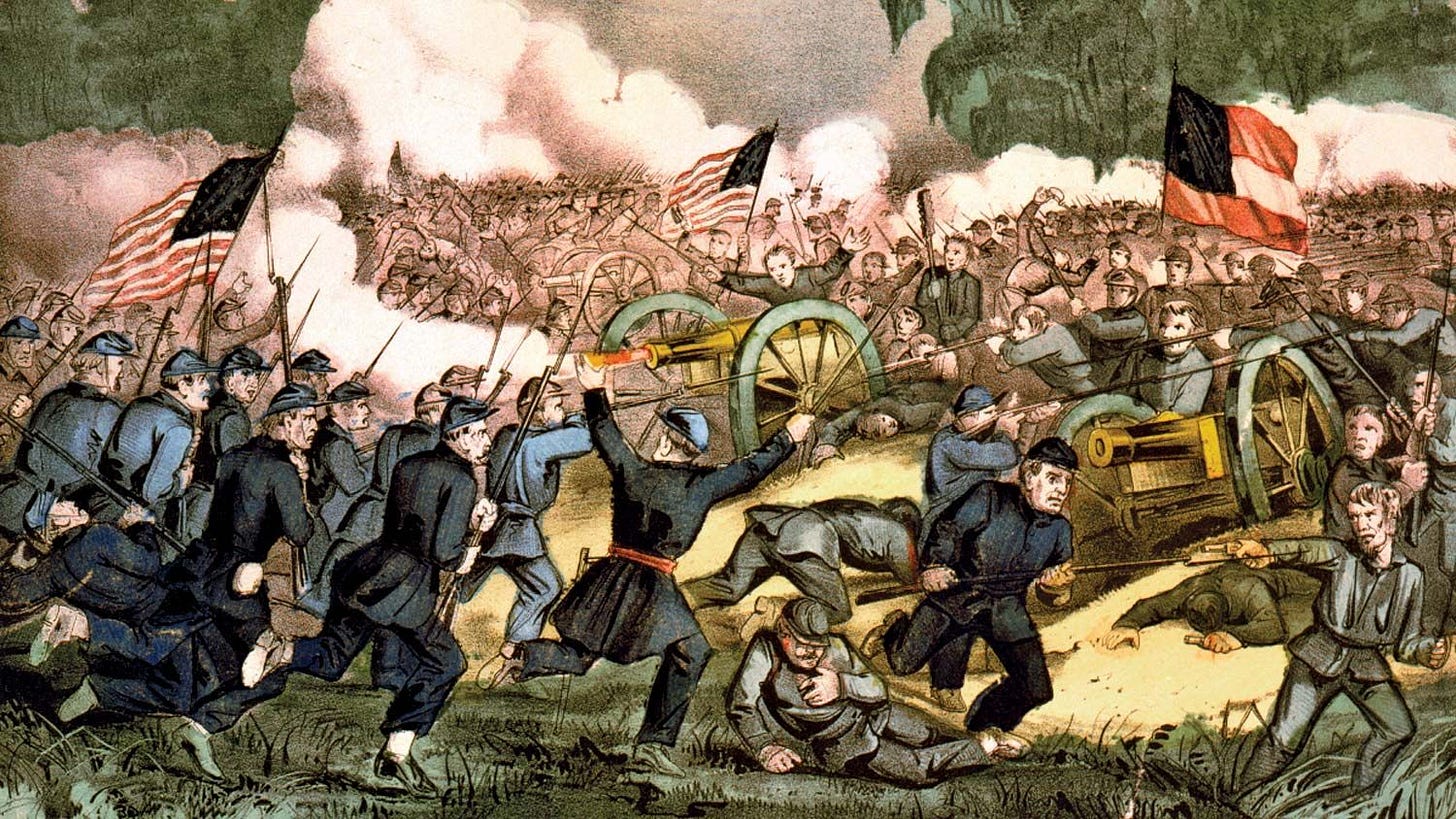
Despite his best efforts, and perhaps due to his limited proficiency in English, Kahn was unable to convince the Union Army that he himself was in fact part of the Union Army, and part of the all white New York’s 43rd Infantry. But because he was of color, and described as having dark complexion, and even though he had just fought in one of American history’s most famous battles to end the scourge of slavery and white supremacy in America, they believed he could not be part of the white unit. Therefore, the Union Army held Private Kahn under military arrest.
As punishment, Kahn was sent to Philadelphia and put to work in a labor camp with recently escaped enslaved people. He spent the next ten months trying to find anyone who could vouch for him, reunite him with his New York 43rd, or even a member of the New York 43rd—but to no avail.
Private Kahn Escapes A Union Prison Camp
All that changed 10 months later in May of 1864. The Battle of the Wilderness was set to begin in Fredericksburg, Virginia between General Grant’s Union Army and General Lee’s Confederate Rebellion Army. Private Kahn, having learned that the 14th New York Infantry was taking a train down to partake in that battle, devised a remarkable plan. In his time in what was effectively a slave labor camp, Kahn had befriended an enslaved person, and conceived the plan with his support. His friend was tasked with distracting the prison guard, while Kahn prepared his escape. Kahn waited patiently and timed his escape with the departing train, and took off on foot.
Running as fast as he could, Kahn chased after the train at the Philadelphia station, and jumped on to it at the last possible moment before it was going too fast to catch on foot. By the time the prison guard realized what happened, it was too late. Kahn was already out of their grasp and on a train headed back into battle. As Kahn hoped, he found and remained with the 14th New York Infantry on this trip, that is, until Washington DC. From here, and with no meaningful provisions, he traveled nearly 70 miles by foot down to Spotsylvania, Virginia by following other squadrons.
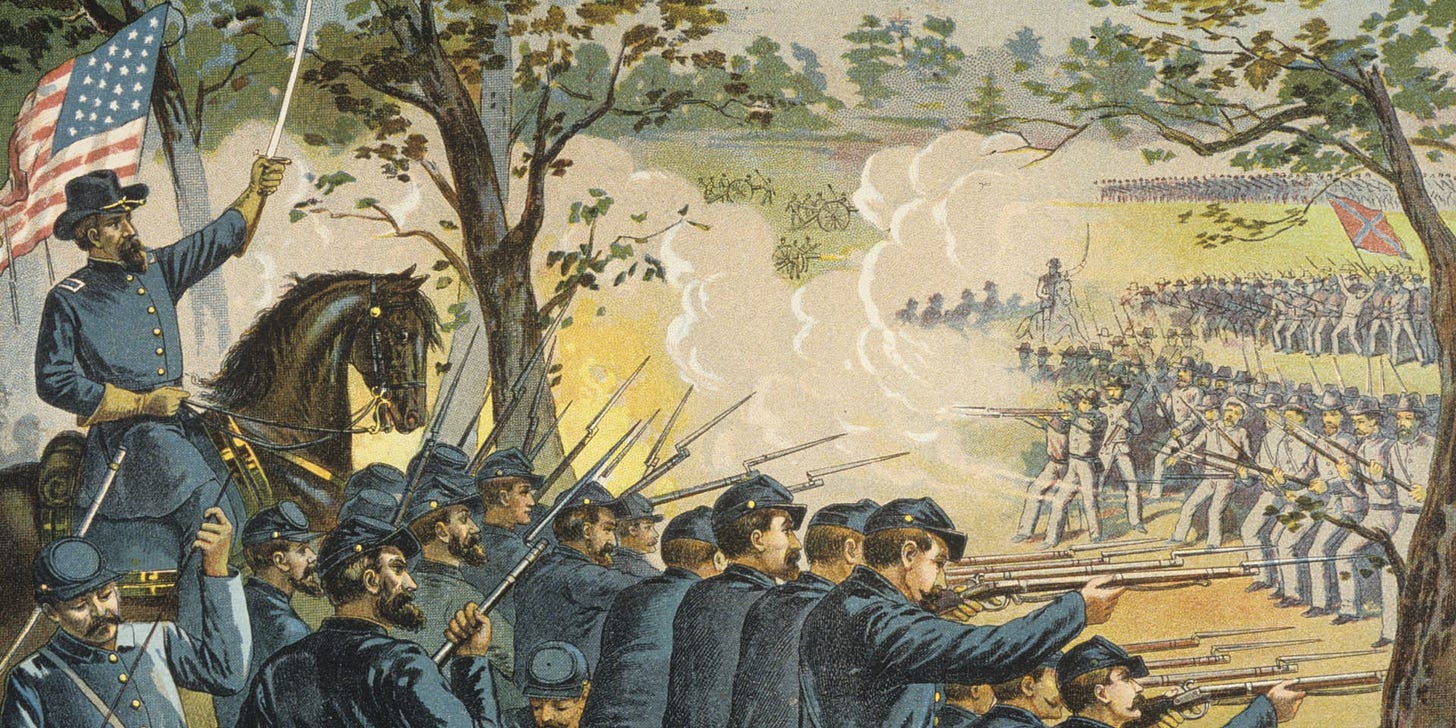
Immigrant, Muslim, American, Civil War Hero
Private Kahn arrived at the Battle of the Wilderness on May 7, 1864, which was the last day of the battle. He remarkably found and was reunited with his 43rd infantry unit. Joining his brothers once more, Kahn reengaged his service and fight to help the Union Army win. Yet, only 15 minutes into the battle he was wounded with a gunshot to his left hand.
Kahn, an immigrant who arrived in the United States just months before the Civil War broke out, had now served as a cook, fought in the Battle of Gettysburg, suffered 10 months in a prison camp, escaped and found a miraculous way to reunite with his Unit, fought in another battle, and suffered a major injury. But at every obstacle that he could have used as an excuse to quit, he seized as an opportunity to fight onwards. This time was no different. Thus, far from using this injury as an excuse to exit the Civil War, and he certainly would have been justified, Kahn persisted.
Undeterred, he refused to leave the war, and took the time to heal. And after his hand healed, Private Kahn returned once more to the theatre of war, this time as a sharpshooter. Private Kahn would then serve through almost the entirety of the Civil War until it ended the following year on April 9, 1865, exactly 160 years ago today.
The Legacy of Civil War Hero Mohammed Kahn
Private Mohammed Kahn was one of only 250 Muslim soldiers who fought in the Civil War. His story is even more unique, however, as he fought in the famous Battle of Gettysburg, is believed to be one of only two Muslim soldiers who received a pension, and may be the only Muslim soldier who was also an immigrant.
Private Kahn’s pension application records in detail the battles in which he fought, the injuries he suffered, and the duties he performed both as a cook and as a soldier. Private Mohammed Kahn died on May 26, 1891 in Manhattan, New York. He was buried at Cypress Hills National Cemetery in Brooklyn, Kings County. His burial plot is 2, 5009. Pictured here is his gravestone.
Conclusion
I first learned about Mohammed Kahn while researching for an opinion editorial on the vast contributions of Muslim Americans to our nation’s history. Contrary to the popular perception that Muslims or Islam are new to America, Muslims have thrived in America since before America even existed, and have fought to defend this nation in every battle since the Revolutionary War, and to expand national participation in democracy.
Private Mohammed Kahn’s story is about that power of perseverance to overcome obstacles, the power of good to conquer hate, and the power of justice to conquer injustice. And while this article is a heavily summarized story of his life, remarkably, there are no books on Private Mohammed Kahn. Meanwhile, his full and complete 209 page pension is preserved in the US Government National Archives—which fortunately so far has not been removed by the current regime. Given the opportunity, perhaps I’ll take the initiative to write this much needed book about a critical and precious story of American history.
For now, I hope you found value in this inspiring story of Private Mohammed Kahn, a hero of the American Civil War. Let this be a reminder that our nation has always strived towards justice when we embraced diversity, immigrants, religious pluralism, and the relentless fight to expand equal justice under the Constitution. Let us work with the same zeal for justice today in 2025, as Civil War hero Private Mohammed Khan did for our country in 1865.

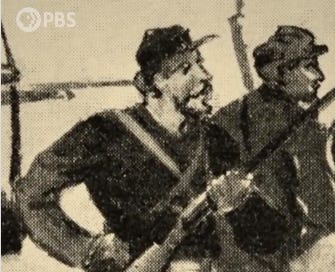



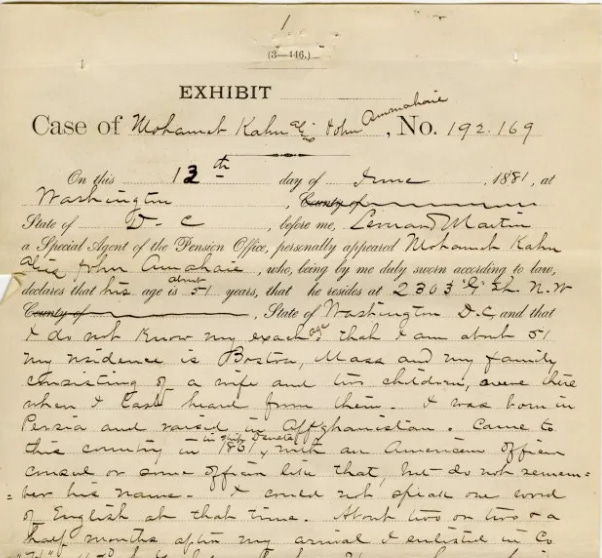
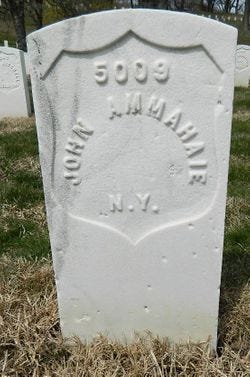
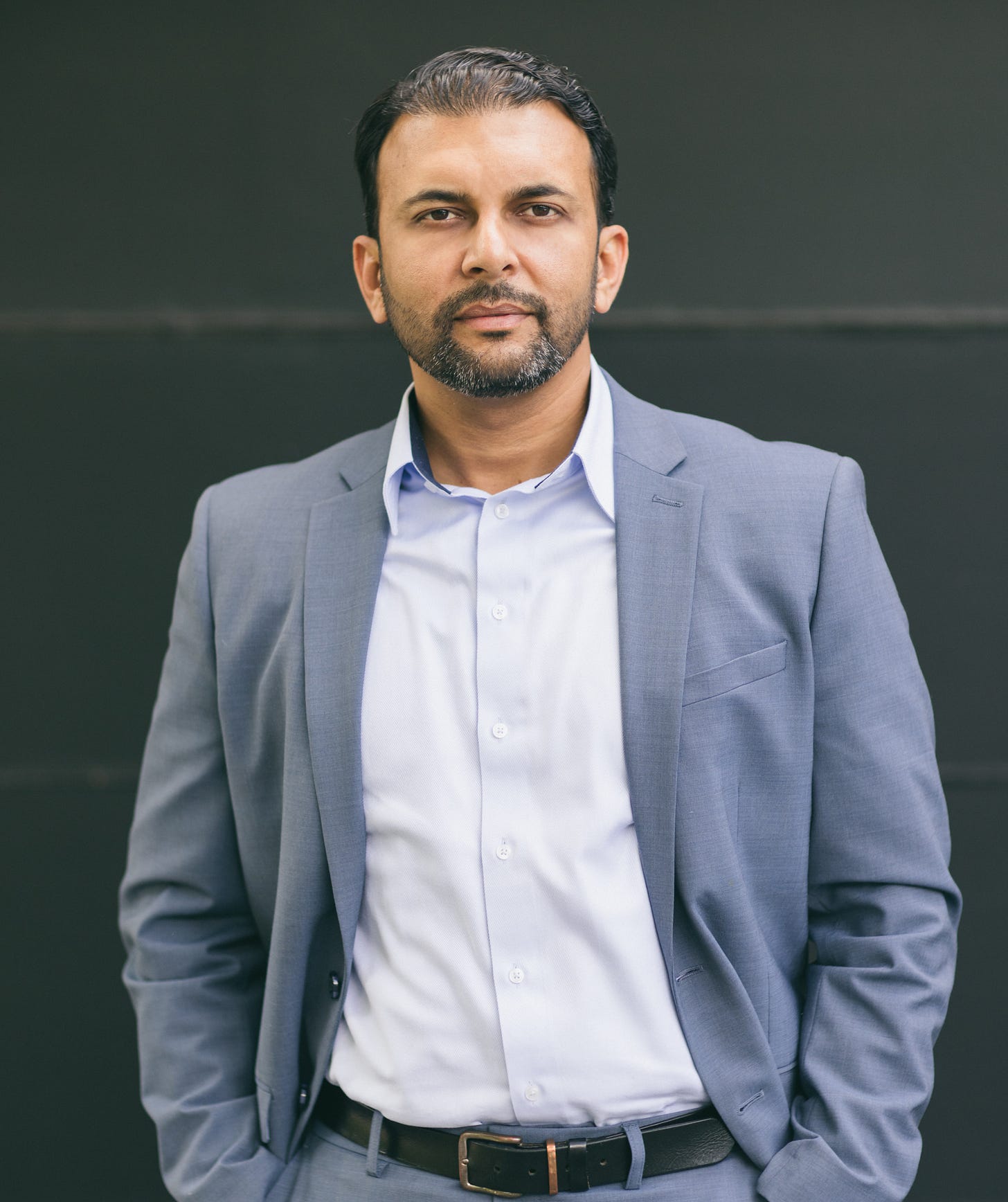









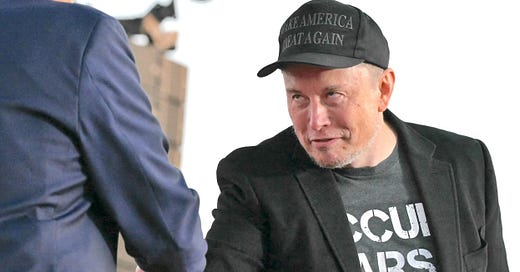

Please write the book. This would be a tremendous children's book as well.
Yakoke a nakfi (Thank u, my brother) x0x Keep dropping the breadcrumbs, Qasim. Everyone in this world should know this vital history. Let's keep pushing and shining light as the push for white-centered, whitewashed history keeps deepening. Our stories ARE American stories. Our history IS American history. It's been so good to see your posts and hear your Sirius show this past Sunday. May you and your beloved family continue to heal and find endless joy in the sweet memories of your amazing father. Be well a nakfi.